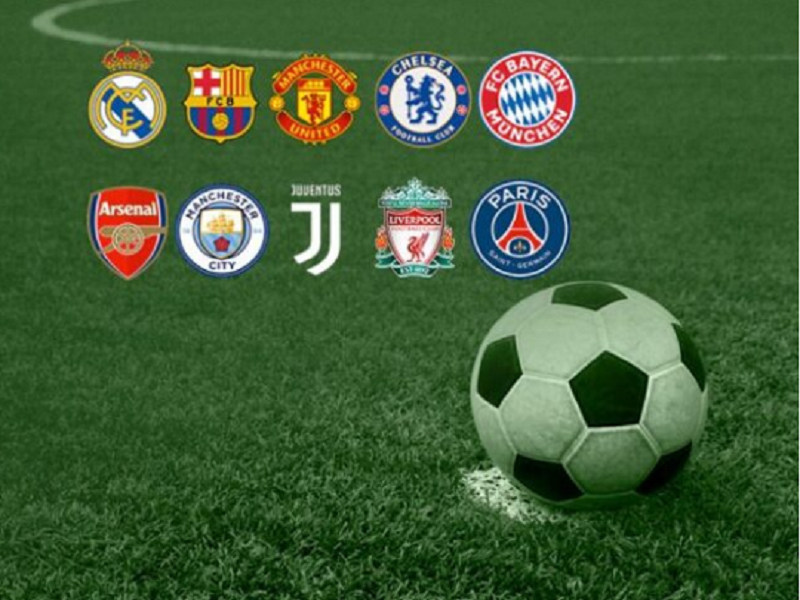Introduction
Football, the most popular sport on the planet, has given rise to numerous exceptional clubs that have etched their names in the annals of sporting history. Within this rich tapestry of footballing excellence, a select few clubs stand tall as the world’s best. In this article, we embark on a journey to explore the criteria that define the world’s best football clubs, diving into their historical significance, achievements, fan support, infrastructure, playing style, and much more.
Criteria for Evaluating the Best Football Clubs
When assessing the world’s best football clubs, several criteria come into play. These factors contribute to the legacy and reputation of a club, setting them apart from their counterparts. Let’s examine the key aspects that help determine the greatness of a football club.
Historical Significance and Legacy
A world’s best football club often carries a rich history, spanning decades or even over a century. The club’s founding, iconic moments, legendary players, and influential figures shape its legacy. The heritage and traditions associated with the club add depth and meaning to its identity.
Success in Domestic Competitions
Domestic success serves as a crucial measure of a club’s greatness. Consistently performing well in national leagues and cup competitions demonstrates the club’s ability to compete at the highest level. League titles, domestic cup triumphs, and record-breaking winning streaks showcase a club’s dominance within their own country.
International Success and Prestige
The world’s best football clubs have a global reputation, built on their achievements in international competitions. Winning prestigious tournaments such as the UEFA Champions League, FIFA Club World Cup, or continental championships elevates a club’s standing. International success solidifies a club’s legacy and showcases their ability to compete against the finest teams from around the world.
Youth Development and Talent Pipeline
A world’s best football club invests in nurturing young talent and developing future stars. Establishing a renowned youth academy and providing a clear pathway for young players to progress to the senior team demonstrates the club’s commitment to long-term success. Producing homegrown talents who go on to achieve greatness further enhances a club’s reputation.
Fan Base and Support
The strength and passion of a club’s fan base contribute significantly to its greatness. A world’s best football club boasts a dedicated following, both locally and globally. The unwavering support of fans, electrifying atmospheres in stadiums, and vibrant fan culture all play a part in establishing the club as an institution cherished by millions.
Financial Strength and Infrastructure
A club’s financial stability and infrastructure provide the foundation for sustained success. State-of-the-art training facilities, modern stadiums, and robust financial backing enable a club to attract top talents, invest in the best coaches and staff, and compete at the highest level. Financial prowess and infrastructure are vital aspects of a world’s best football club.
Style of Play and Sporting Philosophy
A club’s distinctive style of play and sporting philosophy can captivate football enthusiasts worldwide. The world’s best football clubs often embrace an attractive, attacking brand of football that showcases skill, creativity, and tactical brilliance. A recognizable playing style and adherence to certain principles add to a club’s allure and legacy.
Iconic Players and Moments
The presence of iconic players who have left an indelible mark on the club’s history is a testament to its greatness. These players become synonymous with the club, embodying its values and entertaining fans with their brilliance on the pitch. Memorable moments, such as last-minute goals, comebacks, or historic victories, further contribute to the club’s lore.
Managerial Excellence
World’s best football clubs benefit from exceptional managerial leadership. Successful managers who implement effective strategies, foster a winning culture, and maximize the potential of their players play a pivotal role in the club’s achievements. The influence of renowned managers often extends beyond their tenure, shaping the club’s identity for years to come.
Rivalries and Derbies
Intense rivalries and derbies add an extra layer of excitement to football and contribute to a club’s prominence. Matches against arch-rivals generate fervent passion and draw global attention. The history and significance of these rivalries further elevate the stature of the clubs involved, highlighting their place among the world’s best.
Global Reach and Brand Value
A world’s best football club possesses a global reach, with fans spread across continents. The club’s brand value, commercial partnerships, and merchandise sales reflect its international appeal. Expanding the club’s presence beyond its home region enhances its status and impact on the global football landscape.
Social Impact and Community Involvement
Great football clubs recognize their social responsibility and actively engage with their local communities. Initiatives such as charitable endeavors, youth development programs, and community outreach projects demonstrate a club’s commitment to making a positive impact off the pitch. Social responsibility and community involvement contribute to the club’s overall greatness.
Evolution and Adaptability
The ability to evolve and adapt to the changing dynamics of football is a hallmark of a world’s best football club. Embracing new tactics, implementing innovative training methods, and scouting emerging talents keep the club at the forefront of the sport. The willingness to evolve ensures continued success and relevance in the ever-evolving football landscape.
Conclusion
The world’s best football clubs are more than just institutions of sport; they are symbols of excellence, passion, and legacy. Through their historical significance, success in domestic and international competitions, development of young talent, loyal fan base, financial strength, unique playing styles, iconic players, and managerial prowess, these clubs etch their names in the hearts of football enthusiasts worldwide. The world’s best football clubs transcend borders, languages, and cultures, uniting fans in their shared love for the beautiful game.

FAQs (Frequently Asked Questions)
1. Which club is considered the greatest football club of all time? Determining the greatest football club of all time is subjective and often sparks passionate debates among fans. However, clubs such as Real Madrid, Barcelona, Manchester United, Bayern Munich, and Liverpool are often cited as among the greatest due to their historical success and global impact.
2. Can a club be considered the best in the world without winning international tournaments? While international success adds to a club’s greatness, it is not the sole criterion. Domestically dominant clubs that consistently win league titles, domestic cups, and establish themselves as powerhouses can still be considered among the world’s best.
3. How do fan loyalty and support contribute to a club’s greatness? Fan loyalty and support create a sense of identity and belonging for a club. The passionate backing of fans fuels the players’ performances, generates revenue, and elevates the club’s stature. The emotional connection between a club and its fans is an integral part of its greatness.
4. What role do rivalries play in determining a club’s greatness? Rivalries add excitement, intensity, and historical context to football matches. Derbies and fierce rivalries often showcase the best of both clubs involved and draw significant attention. The impact of rivalries on a club’s greatness stems from their cultural and sporting significance.
5. How do football clubs contribute to their local communities? Football clubs engage in various community-oriented initiatives such as grassroots programs, charitable projects, and educational campaigns. These efforts help make a positive impact on local communities, fostering a sense of pride and unity while addressing social issues.
As the world of football continues to evolve, new contenders may emerge and established giants may further solidify their positions. The legacy of the world’s best football clubs continues to be shaped by their achievements, influence, and the everlasting memories they create on the hallowed turf.



